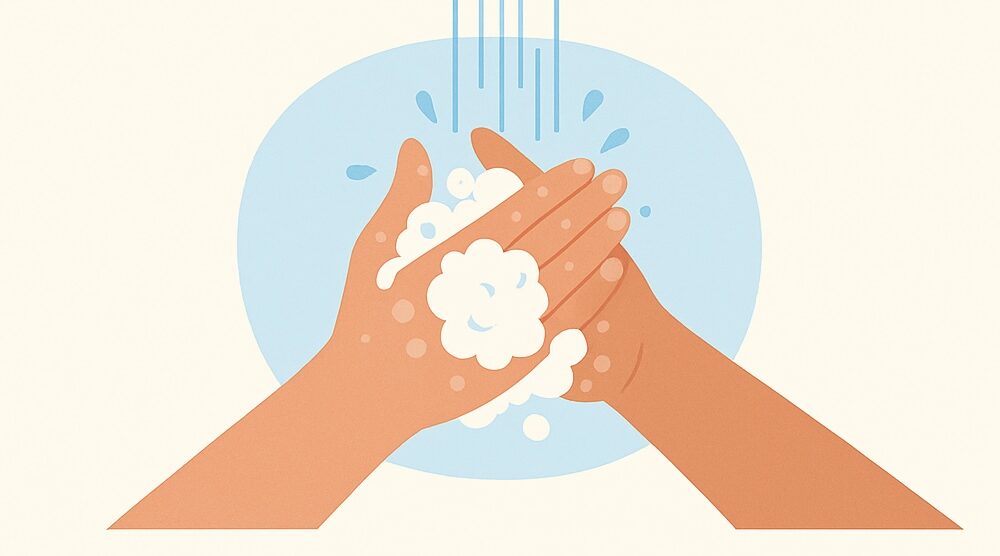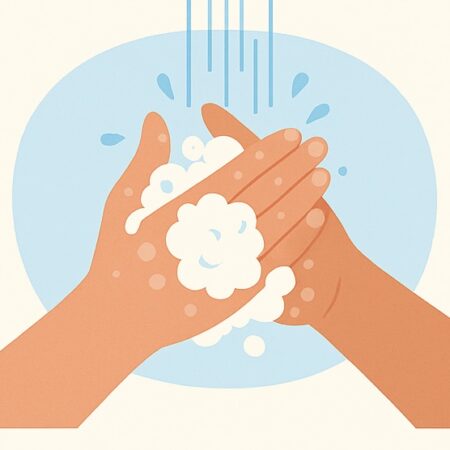Soap. Water. 20 Seconds. That’s All It Takes to Stop These Infections
As a medical professional, I cannot overstate the importance of proper hand hygiene. In my years of practice, I’ve witnessed firsthand how a simple act like washing hands with soap and water can prevent the spread of numerous infections. It’s a fundamental practice that serves as the first line of defense against many diseases.
Why Handwashing Matters
Our hands are in constant contact with various surfaces, making them prime carriers for germs. These germs can enter our bodies when we touch our eyes, nose, or mouth, leading to infections. Regular handwashing removes these pathogens, reducing the risk of illness.
Infections Preventable by Handwashing
Proper hand hygiene can prevent a range of infections, including:
-
Respiratory Infections: Such as the common cold, influenza, and COVID-19.
-
Gastrointestinal Infections: Including norovirus, salmonella, and hepatitis A.PMC+6CDC+6A Trusted Partner in Patient Care+6
-
Skin and Eye Infections: Like impetigo and conjunctivitis.
-
Parasitic Infections: Such as pinworms and other intestinal worms.CEUfast
By maintaining clean hands, we can significantly reduce the transmission of these diseases.
Proper Handwashing Technique
To ensure effective handwashing, follow these steps:
-
Wet your hands with clean, running water.
-
Apply soap and lather well.
-
Scrub all surfaces, including the backs of hands, between fingers, and under nails, for at least 20 seconds.
-
Rinse thoroughly under running water.CDC+13Wikipedia+13Integrated Senior Care+13
-
Dry with a clean towel or air dry.
This method effectively removes germs and prevents their spread.
When to Wash Your Hands
It’s crucial to wash your hands:
-
Before and after eating.A Trusted Partner in Patient Care
-
After using the restroom.
-
After coughing, sneezing, or blowing your nose.
-
After touching garbage or contaminated surfaces.
-
Before and after caring for someone who is ill.
Regular handwashing during these times helps maintain personal and public health.
Handwashing in Healthcare Settings
In healthcare environments, hand hygiene is paramount. Proper handwashing can prevent up to 50% of avoidable infections acquired during healthcare delivery, including those affecting the health workforce . Both patients and healthcare workers must adhere to strict hand hygiene protocols to minimize the spread of infections.World Health Organization (WHO)
Global Handwashing Initiatives
Global Handwashing Day, celebrated on October 15, emphasizes the importance of hand hygiene worldwide. The campaign aims to reduce childhood mortality rates and related respiratory and diarrheal diseases by promoting handwashing with soap.
Conclusion
Handwashing with soap and water is a simple yet powerful tool in preventing the spread of infections. By incorporating proper hand hygiene into our daily routines, we can protect ourselves and others from a wide range of diseases. It’s a small action that makes a significant impact on public health.










